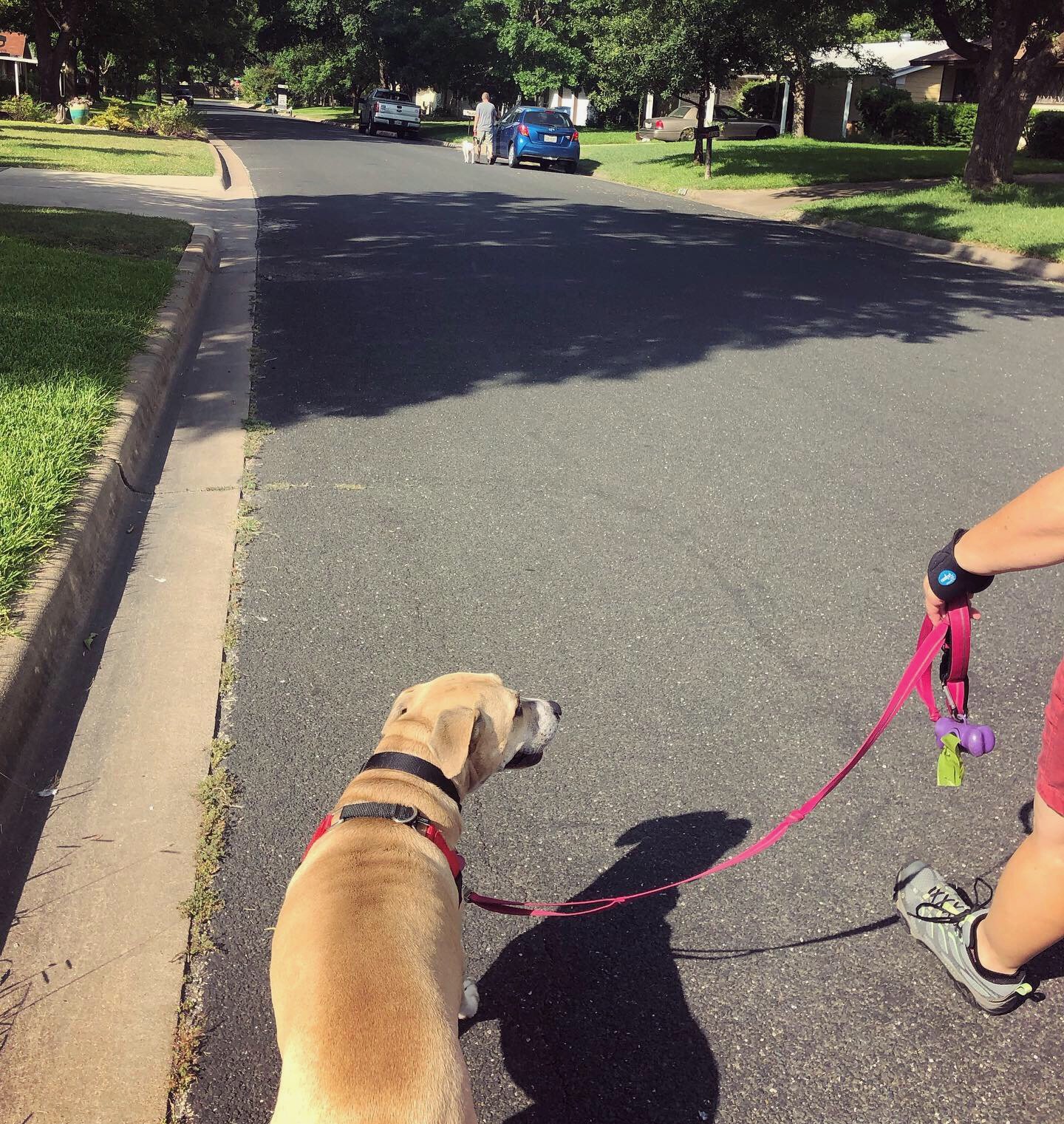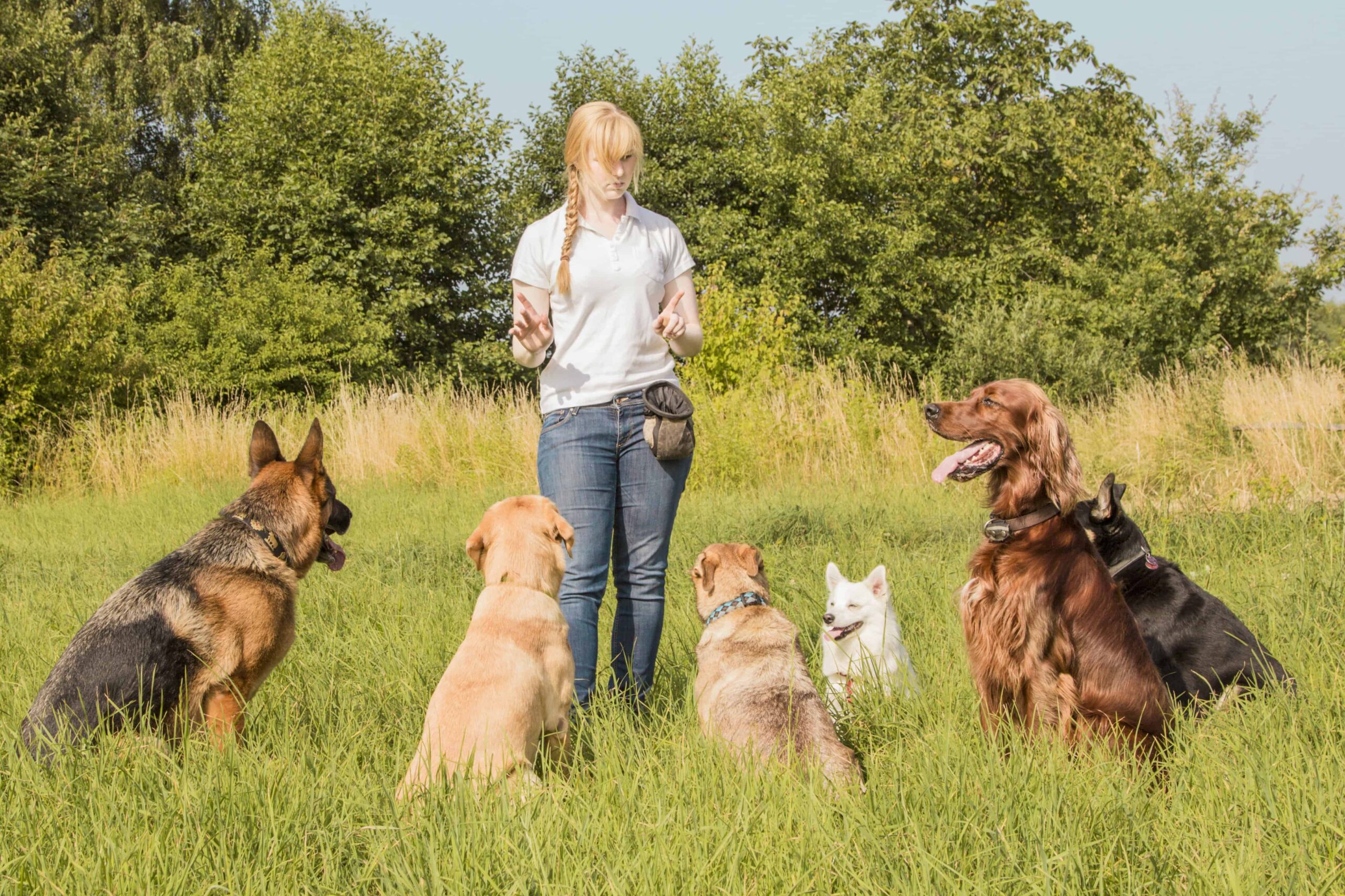Dog Training Charlotte NC: Your Path to a Well-Behaved Dog
Dog Training Charlotte NC: Your Path to a Well-Behaved Dog
Blog Article
Unlock Your Pet's Potential: Proven Canine Training Approaches for Success
Effective canine training is a nuanced process that hinges on comprehending canine behavior and utilizing scientifically backed strategies. By including favorable reinforcement, developing clear commands, and focusing on socializing, canine owners can cultivate an effective partnership with their pets.
Comprehending Canine Behavior
Understanding dog actions is essential for reliable training and cultivating a positive relationship in between dogs and their owners. A detailed grasp of canine body language, vocalizations, and social communications is critical for recognizing their emotions and requirements. Dogs interact mainly via non-verbal cues; for instance, a wagging tail might indicate exhilaration, while pinned ears can indicate worry or entry.

Additionally, ecological elements play a substantial duty fit a canine's actions. Changes in routine, brand-new environments, or the visibility of strange individuals can cause tension or anxiousness in pets. Identifying these triggers makes it possible for proprietors to alleviate negative reactions and develop appropriate training methods.
Inevitably, a deep understanding of pet dog habits lays the foundation for effective training approaches, boosting both habits and the general bond in between the dog and its owner. dog training charlotte nc. This expertise is crucial for fostering a well-adjusted, delighted canine friend
Favorable Support Strategies
Effective training depends heavily on favorable support strategies, which have actually been revealed to produce significant cause shaping wanted habits in canines. This technique entails compensating a dog for exhibiting certain actions, consequently boosting the likelihood that these actions will be repeated. Rewards can take different types, including deals with, praise, playthings, or play, depending on what encourages the private pet dog.

It is necessary to slowly phase out benefits as the dog finds out the actions, transitioning to periodic reinforcement. This technique keeps the habits over time while stopping reliance on consistent benefits. By concentrating on positive reinforcement, fitness instructors can cultivate a trusting relationship with their pet dogs, promoting a cooperative and healthy training setting that boosts total obedience and performance.
Developing Regular Commands
A fundamental facet of effective pet training is the establishment of consistent commands. Uniformity in commands is crucial for effective communication between the dog and the fitness instructor. When commands are uniform, dogs find out to connect details words with preferred habits, which speeds up the training procedure and enhances understanding.
To establish constant commands, it is essential that all member of the family utilize the exact same terms and motions. If one person makes use of "sit" while one more says "sit down," it can create complication for the canine. Select clear, unique words for commands and make sure everybody entailed in the pet dog's training complies with these selections.
In addition, repeating is essential. Strengthen commands via regular method, guaranteeing that the dog receives ample possibilities to react correctly. When a canine efficiently adheres to a command, immediate positive support needs to follow. This can be in the kind of deals with, praise, or play, solidifying the link between the activity and the command.
Last but not least, hold your horses. Establishing Read More Here regular commands takes time and initiative. With devotion and clarity, you will aid your pet create a strong understanding of assumptions, ultimately resulting in a mannerly companion.
Socialization and Direct Exposure
Interacting socially a pet is necessary for cultivating a well-adjusted and confident buddy. This process entails exposing your canine to a selection of environments, individuals, and various other animals to create their social abilities image source and versatility. Early socialization, preferably in between the ages of three to fourteen weeks, is essential, as it lays the groundwork for a canine's future actions.
Throughout socializing, purpose to give favorable experiences in various settings, such as parks, busy streets, and homes with other pets. Introduce your canine to numerous stimulations, consisting of audios, sights, and smells, ensuring that each encounter is gratifying. This direct exposure assists mitigate concern and anxiousness, paving the method for a more resistant dog.
Participating in controlled group play sessions with various other pets can also improve social skills, showing your family pet ideal interactions and borders. Constantly monitor your pet's comfort level during these experiences, gradually enhancing direct exposure as their self-confidence grows. Remember, the goal is to create a well-rounded pet dog that prospers in diverse scenarios, advertising an unified connection with both people and other animals. Focusing on socializing will dramatically add to your canine's total joy and habits throughout their life.
Overcoming Common Educating Challenges

Pets may struggle to concentrate in unknown or active setups. Progressively desensitize your dog to distractions by starting training in a silent setting and gradually presenting even more stimulations as they become proficient.
Additionally, behavior concerns like leaping or extreme barking can come to be frustrating. Address these by teaching alternative behaviors, such as resting comfortably when greeting guests. Uniformity and persistence are important; enhance preferred habits consistently and stay clear of abuse, which can result in confusion.
Last but not least, recognize that each pet is one-of-a-kind, and training timelines may vary. Tailor your technique to your canine's private demands, and seek specialist support if needed. With willpower and the ideal methods, getting over these obstacles can result in a trained, happy canine companion.
Conclusion
In conclusion, opening a pet's prospective requires a comprehensive strategy that incorporates an Read Full Article understanding of canine actions, the application of favorable reinforcement techniques, and the facility of consistent commands. Early socializing and exposure to diverse settings even more improve a pet's flexibility and confidence. By resolving typical training challenges with tailored techniques and persistence, a harmonious and participating relationship between pet dog and trainer can be promoted, eventually leading to a well-behaved buddy qualified of growing in numerous scenarios.
Reliable pet training is a nuanced procedure that hinges on understanding canine behavior and using clinically backed strategies.Recognizing canine behavior is crucial for reliable training and promoting a favorable relationship in between canines and their proprietors.Reliable training depends heavily on positive support techniques, which have actually been revealed to produce substantial results in forming desired habits in dogs. When commands are uniform, dogs find out to connect particular words with preferred actions, which accelerates the training procedure and boosts understanding.
In final thought, unlocking a pet dog's prospective requires a detailed technique that incorporates an understanding of canine behavior, the application of favorable reinforcement strategies, and the establishment of consistent commands.
Report this page